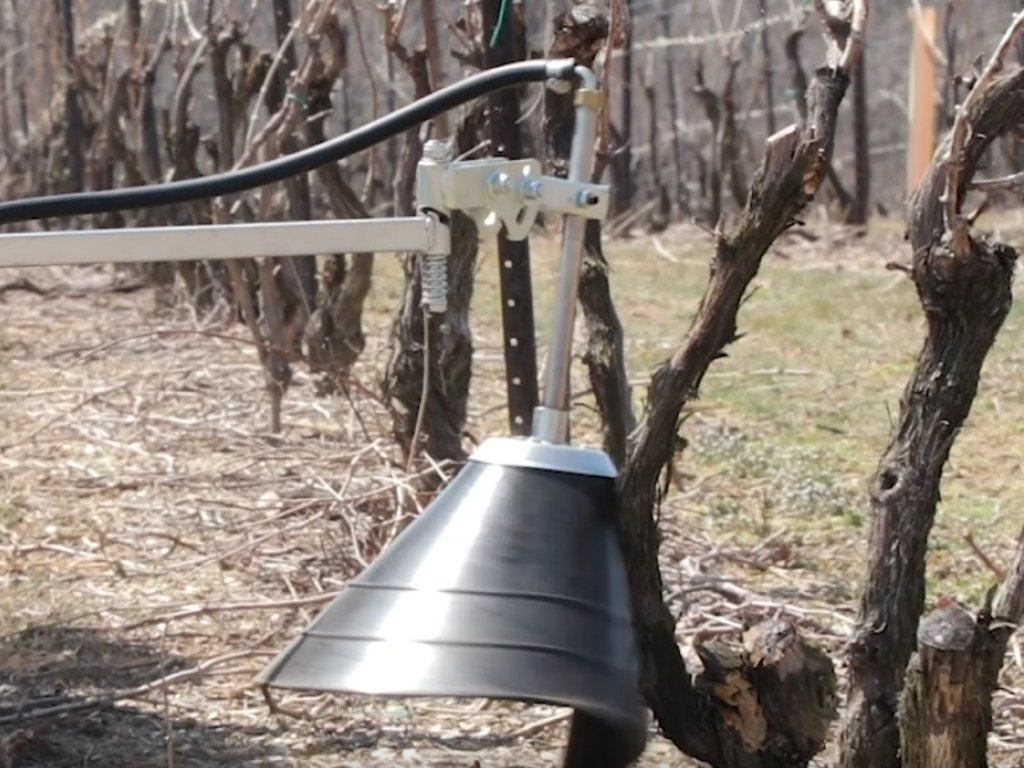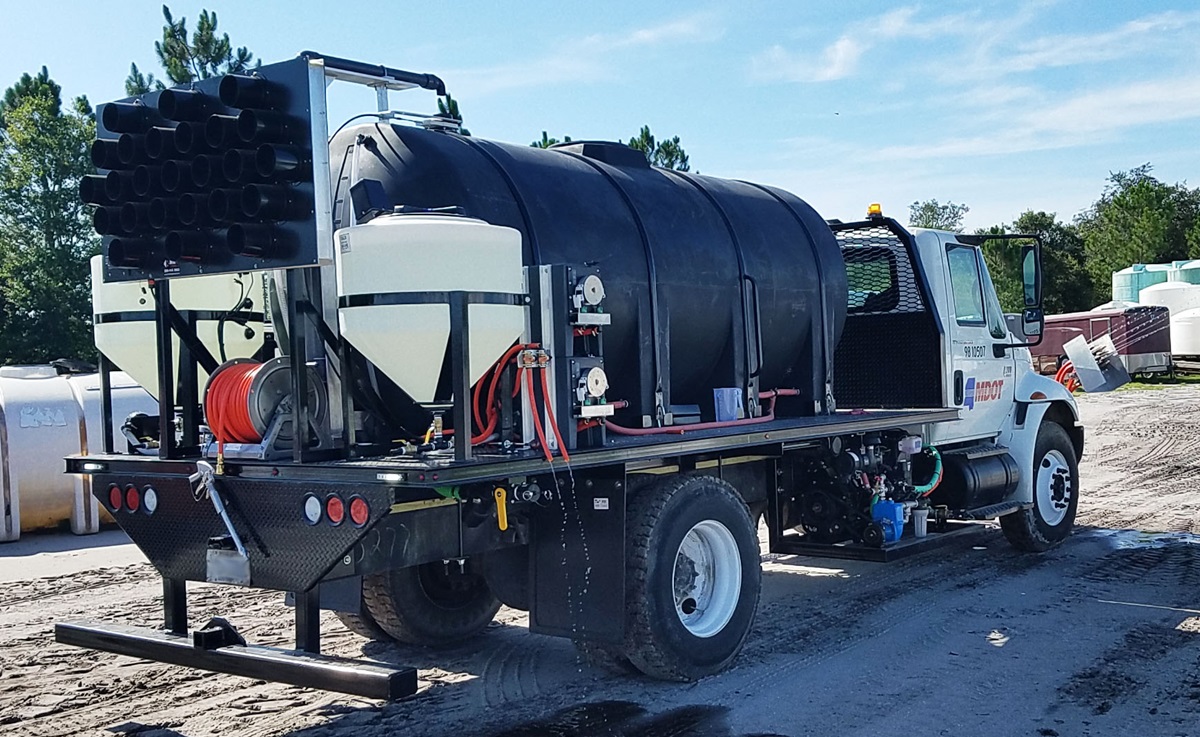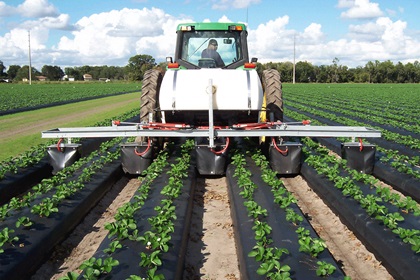Herbicide Spray Trucks For Sale: Your Ultimate Guide to Precision Application pickup.truckstrend.com
In the vast landscapes of agriculture, the meticulously manicured greens of golf courses, the sprawling properties managed by landscapers, and the essential infrastructure maintained by municipalities, precise weed and pest control is not just a preference—it’s a necessity. At the heart of this critical operation often lies a specialized piece of equipment: the herbicide spray truck. For businesses and individuals involved in professional grounds maintenance, farming, or public works, acquiring the right spray truck is a pivotal decision that impacts efficiency, effectiveness, and ultimately, profitability.
This comprehensive guide delves into everything you need to know about "Herbicide Spray Trucks For Sale," offering a detailed roadmap for anyone considering this significant investment. From understanding their core components to navigating the market for new and used options, and from budgeting to ensuring regulatory compliance, we’ll equip you with the knowledge to make an informed choice.
Herbicide Spray Trucks For Sale: Your Ultimate Guide to Precision Application
What Are Herbicide Spray Trucks?
At its core, a herbicide spray truck is a mobile platform designed for the efficient and targeted application of liquid chemicals, primarily herbicides, but also insecticides, fungicides, and fertilizers. While some refer to them broadly as "sprayers," the "truck" designation emphasizes their integration onto a vehicle chassis, providing mobility, power, and capacity far beyond what a walk-behind or ATV-mounted unit can offer.
A typical herbicide spray truck comprises several key components working in concert:
- Chassis: The foundation, ranging from a pickup truck bed to a dedicated flatbed or custom-built vehicle.
- Spray Tank: Holds the chemical mixture, varying widely in capacity and material.
- Pump System: Drives the liquid from the tank to the nozzles, powered by the truck’s PTO, a dedicated engine, or hydraulics.
- Spray Boom/Nozzles: Distributes the chemical evenly over the target area. Booms can be rigid, folding, or retractable, while nozzles are selected based on spray pattern and droplet size.
- Control System: Manages pump pressure, flow rate, section control, and increasingly, integrates GPS for precision application and mapping.
- Agitation System: Keeps chemicals mixed consistently within the tank.

These integrated systems allow for large-scale, consistent, and often highly precise application, making them indispensable tools for modern land management.
Who Needs a Herbicide Spray Truck?

The market for herbicide spray trucks is diverse, encompassing a wide range of professionals and organizations:
- Farmers & Agricultural Operations: For broadacre crop protection, row crop spraying, and field maintenance.
- Commercial Landscaping Companies: Managing weeds and pests on large commercial properties, parks, and residential estates.
- Golf Course Superintendents: Maintaining pristine turf conditions and managing various pests and diseases.
- Municipalities & Public Works Departments: Controlling weeds along roadsides, in parks, public spaces, and utility rights-of-way.
- Weed Control & Vegetation Management Businesses: Specializing in controlling invasive species, brush, and unwanted vegetation for various clients.
- Pest Control Operators: Applying insecticides for large-scale pest management outdoors.
- Forestry & Timber Companies: For silviculture, managing undergrowth, and preparing sites.

If your operation involves regular, large-scale liquid chemical application, a dedicated herbicide spray truck offers unparalleled efficiency and professionalism.
Key Components to Consider When Buying
Understanding the critical features of a spray truck is paramount to selecting the right model for your needs.
1. Chassis/Truck Type
- Pickup-Mounted Units: Often skid-mounted, these are ideal for smaller operations or those needing versatility, as the unit can be removed when the truck is needed for other tasks. Capacities typically range from 50 to 300 gallons.
- Flatbed Sprayers: Mounted directly onto a flatbed truck, these offer more stability and can accommodate larger tanks (200-800 gallons) and wider booms.
- Dedicated Spray Trucks: These are purpose-built vehicles, often with specialized chassis and large capacities (600-1200+ gallons), designed for heavy-duty, continuous operation, common in large-scale agriculture or municipal work.
2. Tank Capacity & Material
- Capacity: Directly relates to the size of the area you can spray per fill-up. Consider your typical job size and the availability of water sources for refills.
- Material:
- Polyethylene (Poly): Most common, durable, corrosion-resistant, and translucent for easy level checking.
- Fiberglass: Offers good chemical resistance and can be repaired.
- Stainless Steel: Best for highly corrosive chemicals or specific applications, but more expensive and heavier.
3. Pump Type & Flow Rate (GPM/PSI)
The pump is the heart of the system.
- Diaphragm Pumps: Excellent for abrasive chemicals, lower flow, higher pressure, good for spot spraying or smaller booms.
- Centrifugal Pumps: High flow, lower pressure, ideal for large booms and rapid application. Less tolerant of abrasive chemicals.
- Roller Pumps: Good for mid-range flow and pressure, often PTO-driven.
- Power Source: Pumps can be powered by the truck’s PTO (Power Take-Off), a dedicated gasoline or diesel engine, or hydraulic systems. Match the power source to your truck’s capabilities and your application needs.
4. Spray Boom & Nozzles
- Boom Width: Dictates the swath width per pass, ranging from a few feet to over 100 feet for large agricultural sprayers. Consider your typical work area size.
- Boomless Nozzles: Useful for areas with obstacles where a physical boom would be impractical.
- Nozzle Type: Critical for proper application. Common types include flat fan (uniform coverage), cone (spot spraying), and flood (high volume). Nozzle material (stainless steel, ceramic, polymer) affects durability.
- Section Control: Allows turning off individual boom sections to prevent over-application in irregular-shaped fields or near sensitive areas.
5. Control Systems
Modern spray trucks feature sophisticated control systems:
- Manual Controls: Basic, simple, but less precise.
- Electric Controls: Allows remote operation of valves and pressure.
- Rate Controllers: Automatically adjust flow to maintain a consistent application rate regardless of ground speed.
- GPS Integration: Essential for precision agriculture, enabling automatic section control, variable rate application, mapping, and tracking coverage.
6. Agitation System
Ensures chemicals remain uniformly mixed in the tank, preventing settling or separation. Hydraulic or mechanical agitators are more effective for heavier or suspension-based chemicals than simple jet agitation.
7. Safety Features
Look for features like emergency shut-offs, secure fill ports, anti-siphon devices, robust plumbing, and dedicated storage for personal protective equipment (PPE).
Benefits of Owning a Dedicated Spray Truck
- Efficiency & Speed: Cover large areas quickly and consistently, significantly reducing labor time.
- Precision & Accuracy: Modern systems allow for highly targeted application, minimizing waste and maximizing efficacy.
- Cost-Effectiveness: Reduced chemical waste, optimized application, and minimized labor costs lead to long-term savings.
- Versatility: Many trucks can be adapted for various liquid applications, including fertilizers, insecticides, and de-icing solutions.
- Professional Image: A well-maintained spray truck projects professionalism and reliability to clients.
- Operator Comfort & Safety: Enclosed cabs, climate control, and advanced controls improve operator experience and safety.
New vs. Used: Making the Right Choice
The decision between a new and used herbicide spray truck often comes down to budget, intended use, and risk tolerance.
Buying New
Pros:
- Latest technology (GPS, advanced controls).
- Full manufacturer warranty.
- No wear and tear, reliable performance.
- Customizable to exact specifications.
- Access to manufacturer support and training.
Cons:
- Higher initial cost.
- Depreciation begins immediately.
Buying Used
Pros:
- Significant cost savings.
- Lower depreciation.
- Potentially quicker availability.
Cons:
- No warranty or limited warranty.
- Potential for hidden mechanical issues.
- May have older technology.
- Requires thorough inspection and research.
Tips for Buying Used:
- Inspect Thoroughly: Check the engine, transmission, pump (look for leaks, corrosion), tank (cracks, fading), boom (bends, cracks, welds), and control system functionality.
- Request Maintenance Records: A history of regular maintenance is a good sign.
- Check Pump & Nozzles: These are wear items; ensure they are in good working order or factor replacement costs into your budget.
- Test Drive: Listen for unusual noises, check braking, and ensure all spray functions operate correctly.
- Assess Overall Condition: Rust, faded paint, and worn tires can indicate neglect.
Important Considerations Before Purchase
Beyond the truck itself, several operational factors should influence your buying decision:
- Application Needs: Precisely define what you’ll be spraying (pre-emergent, post-emergent, insecticides, fertilizers), the typical acreage, terrain (flat, hilly, obstacles), and the sensitivity of the areas (e.g., near water bodies, residential zones).
- Budget: Beyond the purchase price, factor in operating costs (fuel, chemicals), maintenance, insurance, and potential upgrades.
- Regulations & Licensing: Chemical application is heavily regulated. Understand local, state, and federal requirements for licensing, permits, chemical storage, and disposal. Ensure the truck meets safety standards.
- Storage & Maintenance: Do you have a suitable, secure location to store the truck? How will you winterize it? Are parts readily available for the specific make and model? Regular cleaning and maintenance are crucial for longevity.
- Training & Safety: Operators must be properly trained in chemical handling, equipment operation, calibration, and safety protocols, including the use of appropriate PPE.
Tips for Buying a Herbicide Spray Truck
- Define Your Requirements: Before you even look, list your non-negotiable features, tank capacity, boom width, and budget.
- Research Brands & Dealers: Look for reputable manufacturers known for durability and good customer support. Read reviews.
- Inspect in Person: Never buy sight unseen if possible. Bring a knowledgeable mechanic or operator.
- Ask Detailed Questions: Inquire about maintenance history, previous use, reasons for selling, and any known issues.
- Test All Functions: Don’t just look; operate the pump, extend and retract the boom, test the controls.
- Consider Customization: If a standard model doesn’t fit perfectly, inquire about modifications or custom builds.
- Factor in Delivery: If buying from afar, calculate shipping costs.
- Understand Warranties: For new trucks, know what’s covered. For used, understand "as-is" implications.
Potential Challenges & Solutions
- Clogging Nozzles:
- Challenge: Leads to uneven application and wasted time.
- Solution: Use proper filtration, clean tanks regularly, and flush lines thoroughly after each use. Select appropriate nozzle types for your chemicals.
- Pump Failure:
- Challenge: Halts operations, costly repairs.
- Solution: Regular preventative maintenance, winterization, using correct pump type for chemicals, and keeping spare parts on hand.
- Chemical Drift:
- Challenge: Off-target application, environmental damage, legal issues.
- Solution: Use low-drift nozzles, spray when wind conditions are calm, maintain correct boom height, and understand local weather patterns. GPS guidance helps prevent over-spraying.
- Regulatory Compliance:
- Challenge: Non-compliance can lead to fines, license revocation.
- Solution: Stay updated on all local, state, and federal regulations regarding chemical application, licensing, and reporting. Maintain accurate spray records.
Price Table: Estimated Herbicide Spray Truck Costs
Please note: These prices are estimates and can vary significantly based on brand, specific features, engine type, condition (for used), location, and market demand. Always obtain specific quotes from dealers.
| Category | Tank Capacity (Gallons) | Typical Features | Estimated New Price Range ($) | Estimated Used Price Range ($) |
|---|---|---|---|---|
| Small/Entry-Level | 50 – 200 | Pickup skid-mounted, gas engine or 12V electric pump, manual hose reel, hand gun, small manual boom or boomless nozzles. Basic pressure gauge. | $5,000 – $25,000 | $2,000 – $15,000 |
| Mid-Size/Professional | 200 – 600 | Flatbed or dedicated chassis, PTO or hydraulic pump, electric or hydraulic hose reel, various boom options (manual fold, some hydraulic), basic rate controller, possibly foam marker. Optional GPS-ready. | $25,000 – $80,000 | $10,000 – $50,000 |
| Large/Commercial | 600 – 1200+ | Dedicated custom chassis, high-capacity PTO or engine-driven pump, hydraulic folding booms (up to 120 ft), advanced rate controllers, GPS guidance with auto-steer and section control, extensive lighting, integrated chemical induction systems, advanced agitation, enclosed cab with climate control. | $80,000 – $300,000+ | $40,000 – $180,000+ |
Note: Used prices are highly dependent on age, hours, condition, and maintenance history.
Frequently Asked Questions (FAQ) about Herbicide Spray Trucks For Sale
Q1: What is the average lifespan of a herbicide spray truck?
A1: The lifespan varies significantly based on maintenance, usage intensity, and initial quality. A well-maintained new truck can last 10-20 years or more. Components like pumps and nozzles will need more frequent replacement. Used trucks’ lifespans depend on their existing wear and tear.
Q2: Can I convert a regular truck into a spray truck?
A2: Yes, many smaller and mid-sized sprayers are designed as skid units that can be mounted onto standard pickup trucks or flatbeds. However, for larger, more integrated systems, a dedicated chassis or professional conversion is often required to handle the weight, power requirements, and specialized components.
Q3: What permits or licenses do I need to operate a commercial spray truck?
A3: Requirements vary by state and local jurisdiction. Generally, you will need a commercial applicator’s license for applying restricted-use pesticides, and potentially a business license. Training and certification in pesticide safety and application are almost always mandatory. Always check with your state’s Department of Agriculture or environmental protection agency.
Q4: How often should I calibrate my spray truck?
A4: Calibration should be performed regularly—ideally at the beginning of each spraying season, whenever you change nozzles, or if you notice inconsistencies in application. It’s crucial for ensuring accurate chemical rates and preventing over or under-application.
Q5: What kind of maintenance is required for a spray truck?
A5: Regular maintenance includes:
- Thorough cleaning of the tank, lines, and nozzles after each use.
- Checking and cleaning filters.
- Inspecting hoses and fittings for leaks or wear.
- Lubricating moving parts (e.g., boom hinges, pump bearings).
- Winterizing the system before freezing temperatures (flushing with antifreeze).
- Regular engine and chassis maintenance as per the truck’s manufacturer guidelines.
Q6: Is GPS guidance necessary for a herbicide spray truck?
A6: While not strictly "necessary" for all operations, GPS guidance significantly enhances precision, reduces chemical overlap or skips, saves time, and provides valuable application data. For large-scale operations or those requiring high accuracy, it’s an invaluable investment that quickly pays for itself.
Conclusion
The decision to invest in a herbicide spray truck is a significant one, offering immense potential for increased efficiency, precision, and profitability for a wide range of operations. By thoroughly understanding your specific application needs, meticulously evaluating the key components of available trucks, and carefully weighing the pros and cons of new versus used equipment, you can make an informed choice that will serve your business well for years to come. Remember that beyond the initial purchase, ongoing maintenance, operator training, and adherence to safety and regulatory guidelines are paramount to maximizing your investment and ensuring responsible chemical application. With the right knowledge and a strategic approach, your next herbicide spray truck can be a powerful asset in your land management toolkit.
